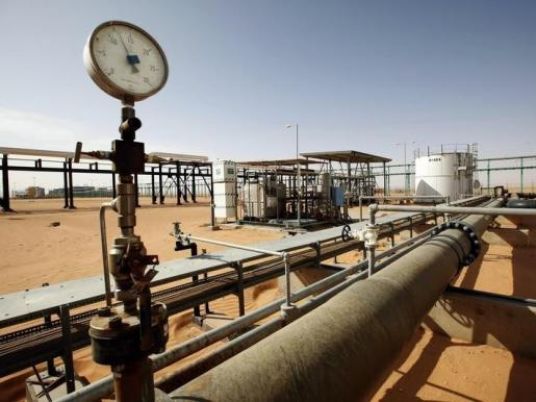
The United States and five of its European allies on Saturday warned that Libya could face bankruptcy if its oil output and prices on international markets continue to fall.
Voicing alarm at the deteriorating security situation in the North African state, the allies said Libya was on the brink of economic implosion because of a collapse in its production and the sliding value of crude.
"We remain deeply concerned about the economic impact of the political and security crisis on Libya's future prosperity," said the statement from Britain, France, Germany, Italy, Spain and the United States.
"In light of low oil production and prices, Libya faces a budget deficit that has the potential to consume all of its financial assets if the situation does not stabilise."
Global oil prices rallied this week having fallen 60 percent in six months.
The joint statement comes after an attack Tuesday on an oil field partly owned by France's Total killed at least 11 workers. Most had their throats slit.
It said: "We share the UN's assessment that these attacks constituted a major break in the public pledges made by the main commanders to refrain from actions that could harm the political process. There can be no military solution to Libya's problems."
It said the Tuesday's assault was "carried out by forces operating under the Alshuruq Operation".
Alshuruq (Sunrise) is the name of an offensive launched by the Islamist-backed Fajr Libya militia alliance in December to try to capture eastern oil facilities from forces loyal to the internationally recognised government.
Libya's oil output has collapsed since the operation began.
– 'Growing terrorist presence' –
The allies urged the warring factions to agree a ceasefire and a national unity government through the UN-led talks.
"The only people who ultimately benefit from continued fighting over Libya's oil terminals and cities are terrorists," said the statement.
"We are concerned by the growing presence of terrorist organisations in Libya, and by the attacks on the Corinthia last week and on the Mabruk oil field earlier this week."
The attack on the luxury Corinthia Hotel in Tripoli, which killed nine people, including five foreigners, was claimed by the Islamic State group.
IS, which has seized chunks of Iraq and Syria, is growing "exponentially" in Libya, the country's ambassador to the United Arab Emirates, Aref Ali Nayed, told AFP on Thursday.
Libya has been plunged into chaos since a 2011 revolution that toppled longtime dictator Moamer Kadhafi.
The country has two rival governments and parliaments, as well as heavily armed militias battling for control of its cities and oil wealth.
Its internationally recognised government is based in the country's far east, near the Egyptian border, while the Fajr Libya (Libya Dawn) alliance took control of Tripoli last summer.
Oil is Libya's main natural resource, with a pre-revolt output of about 1.6 million barrels per day (bpd), accounting for about three-quarters of budget revenues.
But production fell to about 350,000 bpd in December when Fajr Libya attacked the terminals.




